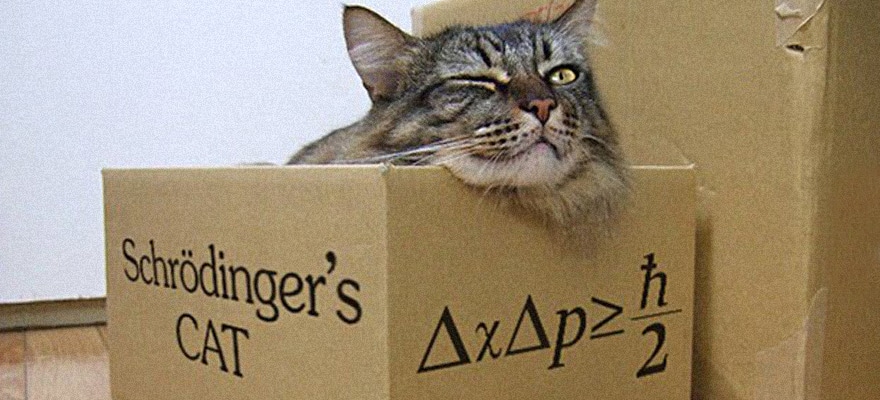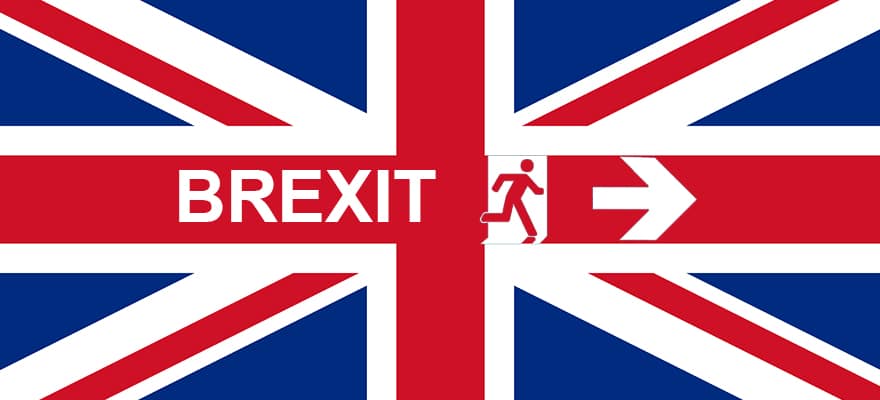This article was written by Brad Alexander, VP of sales at Acuity Trading.
The Big Bang Theory, filmed in the US, is a sitcom broadcast in roughly 60 countries in a variety of languages. If you are a regular viewer of the show, you probably would have heard references to 'Shrodinger’s cat'.
Erwin Schrodinger was an Austrian theoretical physicist who, in 1935, created a thought experiment to try to explain a concept involving the various states of matter in quantum mechanics. The concept includes a cat, locked in a box. The box includes a device controlled by a radioactive substance, decaying at an unknown rate. The device, upon reaching a certain level, will release a poison that will kill the cat. The point is, that no one knows exactly when the poison will be released, so, at any time the cat can be considered both dead AND alive. The only way to know for sure is…you guessed it…to open the box.
So, notwithstanding the safety and wellbeing of the house pets in the Schrodinger residence, this concept has been applied, over the decades, to other areas of life well outside the field of quantum mechanics. Over our lives we are presented with a plethora of questions, options and choices:
“What will happen if I change schools?” “What will happen if I date my best friend’s sister?” “What will happen if I invest in an emu farm?” You won’t know 'what will happen' until you do it. You won’t know until you open the box.
“What does this have to do with Brexit ?” you ask. Maybe nothing; maybe everything (do you see what I did there?).
In the last few weeks we have been bombarded with conjecture and speculation from both sides of the Brexit argument. For example: “If we leave we will lose X,000 jobs!” or, “If we leave we will GAIN X,000 jobs!” or, “If we leave we can save £X,000,000 per minute in aid Payments !” or, “If we leave, the price of a family holiday will rise by £X,000!” or, “If we leave, XYZ Ltd. will pack up and move to Luxembourg!” or…
Fortunately, this time around, the general public in the UK seems to have caught on that the figures being batted around like cricket balls on steroids, are just that…figures. At this point no one really knows what is going to happen. All we have now is uncertainty.
To add to the confusion, I am sure that many of you on both sides of our business have either received, or issued notice, that margin requirements will increase on GBP and EUR before and during the vote. I heard from one large broker that it may actually disable its EA functionality on platforms for the same reason. Considering what happened during the Scottish referendum, and last year’s spectacular events at the Swiss National Bank, this is just good business sense.
Also, news analytics on this topic are intriguing, with clever algorithms showing vastly different results from the physical polls.
You’d think at this point, I would circle back to my cat metaphor, and make the painfully obvious conclusion. Sorry; we aren’t there yet.
Something came to my attention just last week that really caught me off guard. A friend of ours is a successful, European born businessman. He asked the question: “…will I have to leave?” The question literally made my jaw drop, and I realised that there was something missing from the equation.
I needed more information on the topic and, fortunately, I didn’t have far to go. We work in a awesome building in the City of London and when we are not working on news analytics for FX brokers, we get to network and share ideas with some cool people with creative concepts.
Most of these individuals are younger than I (OK, they are ALL younger than I am) and were not born in the UK. So, I asked a simple question: “Do you and you friends worry about having to leave the UK as a result of the Brexit vote?” The answer was a resounding 100% “Yes”. Of course, in kind, I was asked, “What do YOU think is going to happen?” I did not mention cats at this point.
Along the same vein, I belong to a couple of closed Facebook groups, open only to those born in my home country and living in the UK. The discussions are usually based around UK documents, driving licenses, hard water, where to find the best poutine, and where to score some back-alley, imported KD (don’t ask).
Suddenly, last week, there were a number of Facebook group posts about leaving the UK, about threatening to leave the UK, or about actually packing to leave the UK, as a result of the Brexit vote!
I hate to use the word paranoia, but…
After all this evidence, I still thought that something was missing. We have: the fantastic financial projections; the wildly fluctuating news analytics; the battening down of the hatches; the possibility of mass exodus! It was all too familiar somehow. Finally, last Thursday night, while chatting with my wife on this very topic, it occurred to me why this situation felt vaguely nostalgic:
Y2K!
During 1999, common theory purported that every computer system on the planet would fail just after 31 December, 1999 at 11:59 and 59 seconds. Something to do with internal clocks. At the time, paranoia was rife with intelligent people stocking up a full year’s supply of canned goods, drinking water, batteries and enough Corn Flakes to feed Portugal. Basements and pantries were crammed…with stuff.
The writings of Nostradamus were suddenly being reprinted and many predicted our return to savagery with bows, arrows and spears. Individuals, corporations, and governments, globally, all prepared for the worst. Fortunes were being made by IT companies who 'updated' software and systems. I, personally, made a wild prediction which very few people believed.
There we were then. It was 31 December, 1999 at 11:59 and 59 seconds and we were on holiday in Aswan, Egypt, with CNN on the hotel room television. We were viewing the special program — Y2K Watch. As the new millennium came into being around the world in Auckland, Sydney, Tokyo, etc. CNN showed us, not only the fireworks and festivities, but the shocking results of the predicted meltdown of the planet’s IT infrastructure.
My crazy prediction came true! Absolutely, positively, nothing had changed!
So? What’s going to happen when we wake up Friday, 24 June 2016? Depending on the Brexit result, will a cappuccino at Starbucks suddenly cost £20? Will Boris Johnson be able to sell his German bus for a huge profit? Will David Cameron be saying, “Ooops!” or “I’m glad THAT’S over!”
On Thursday, 23 June, 2016 we will finally be able to…OPEN THE BOX!


















